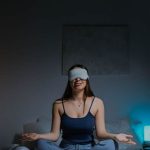Morning Yoga vs. Bedtime Yoga: A Comprehensive Analysis of Benefits and Best Practices
Yoga is widely practiced for its physical, mental, and spiritual benefits. However, timing can significantly impact its effects. Whether you’re an early bird or a night owl, practicing yoga either in the morning or before bed can offer unique advantages. This article provides a comprehensive breakdown of the differences between morning yoga and bedtime yoga, including historical contexts, practical applications, and guidelines for maximizing benefits.
Introduction
The ongoing debate about the best time for yoga practice – morning or evening – continues to intrigue both beginners and seasoned yogis. While morning yoga is believed to energize and set a positive tone for the day, bedtime yoga has a reputation for promoting relaxation and better sleep. This article explores these differences by considering key factors such as physical health, mental well-being, and sleep quality. The purpose is to determine which form of yoga practice is most beneficial under different circumstances, supported by both scientific research and anecdotal evidence.
Key Concepts
Before diving into the specifics of morning and bedtime yoga, it’s essential to understand the following key terms:
- Circadian Rhythms: The natural 24-hour cycles that regulate sleep-wake patterns, affecting energy levels throughout the day.
- Sympathetic Nervous System (SNS): The part of the nervous system responsible for ‘fight or flight’ responses, often activated during morning exercise.
- Parasympathetic Nervous System (PNS): The ‘rest and digest’ system, responsible for calming the body, commonly activated during bedtime yoga practices.
- Asanas: The physical postures practiced in yoga.
Historical Context
Yoga has been practiced for over 5,000 years, with its roots in ancient India. Historically, yoga was recommended to be practiced during the early morning hours, referred to as Brahma Muhurta (the time of creation), which is about an hour and a half before sunrise. This was considered the most auspicious time for spiritual practices, including yoga and meditation.
However, as modern lifestyles have evolved, many people find it more convenient to practice yoga at night, just before bed. This shift reflects the growing understanding of yoga’s potential to aid relaxation, reduce stress, and improve sleep quality. While early morning yoga remains popular, nighttime yoga is becoming increasingly recognized for its unique benefits.
Current State Analysis
Practicing yoga at different times of the day has distinct effects on the body and mind. Below is a detailed comparison between the benefits of morning yoga and bedtime yoga:
| Factors | Morning Yoga Benefits | Bedtime Yoga Benefits |
|---|---|---|
| Energy Levels | Boosts energy and metabolism for the day ahead. | Promotes relaxation and reduces tension, preparing the body for sleep. |
| Mental Clarity | Improves focus, enhances productivity, and boosts mood. | Calms the mind, reduces anxiety, and alleviates stress after a long day. |
| Physical Benefits | Helps in building strength, improving flexibility, and increasing blood circulation. | Releases physical tension and helps the body unwind, aiding in muscle recovery. |
| Sleep Quality | May disrupt sleep if too intense or performed too close to bedtime. | Enhances sleep quality by promoting relaxation and activating the parasympathetic nervous system. |
| Consistency and Discipline | Morning practices help establish a disciplined routine. | Evening practices are easier to integrate into busy lifestyles. |
Practical Applications
Choosing between morning and bedtime yoga should be based on individual goals and lifestyle factors. Here are some practical applications:
- For Productivity: If your primary goal is to be more productive during the day, morning yoga is ideal. It helps improve concentration and sets a positive tone for the day.
- For Stress Relief: If stress relief and better sleep are your priorities, bedtime yoga may be more effective as it activates the parasympathetic nervous system.
- For Weight Loss: While both morning and bedtime yoga can aid weight loss, morning yoga can rev up your metabolism, making it slightly more advantageous for those looking to burn calories throughout the day.
- For Flexibility: Practicing yoga in the evening may be more beneficial for flexibility as the body is naturally more limber at night due to increased circulation from daytime activities.
Case Studies
To better illustrate the benefits of morning versus bedtime yoga, let’s look at two case studies:
| Participant | Morning Yoga Experience | Bedtime Yoga Experience |
|---|---|---|
| John, 35 | Practiced yoga every morning before work for three months. Reported increased energy, better focus at work, and improved mood throughout the day. | After switching to bedtime yoga, John noted better sleep quality and reduced stress but felt less energized during the day. |
| Sara, 28 | Found morning yoga too challenging to fit into her schedule. Practiced bedtime yoga for six months and experienced reduced anxiety, better flexibility, and improved sleep patterns. | Switched to morning yoga and reported increased motivation, but struggled to maintain consistency due to her work schedule. |
Stakeholder Analysis
Understanding the different stakeholders can help in determining the most appropriate yoga practice for individuals. The following groups are considered key stakeholders:
- Health Enthusiasts: Typically prefer morning yoga as it aligns with their fitness goals of energy and productivity.
- Busy Professionals: May benefit more from bedtime yoga, which offers stress relief after long workdays.
- Yoga Instructors: Tend to promote morning yoga for discipline and consistency but recognize the growing demand for evening classes.
Implementation Guidelines
Here are some guidelines for incorporating morning or bedtime yoga into your routine:
- Morning Yoga: Practice energizing poses such as Sun Salutations (Surya Namaskar) and Warrior Poses to activate the body. Avoid intensive workouts if you’re prone to morning fatigue.
- Bedtime Yoga: Focus on calming, restorative poses like Child’s Pose (Balasana), Corpse Pose (Savasana), and deep breathing exercises to wind down.
- Consistency is Key: Whether you practice in the morning or at night, consistency is essential for experiencing long-term benefits.
Ethical Considerations
While yoga can be practiced at any time, it’s important to consider potential ethical implications. For instance, forcing morning yoga on those with challenging schedules may lead to unnecessary stress or even injury due to insufficient preparation. Additionally, using bedtime yoga solely as a stress-management tool without addressing underlying mental health issues could lead to an overreliance on temporary solutions.
Limitations and Future Research
There are some limitations to the existing research on morning vs. bedtime yoga. Much of the current literature focuses on general yoga benefits without distinguishing between different times of day. More comprehensive studies are needed to assess the long-term impacts of practicing yoga at various times, especially in relation to sleep quality and productivity. Future research could explore personalized yoga schedules based on circadian rhythms, age, and occupation.
Expert Commentary
Experts in the field of yoga and mindfulness have varying opinions on the best time to practice yoga. Some argue that morning yoga aligns with natural energy cycles, while others believe bedtime yoga provides unparalleled mental and physical relaxation. Ultimately, the best time for yoga depends on individual goals, lifestyle, and personal preferences.








